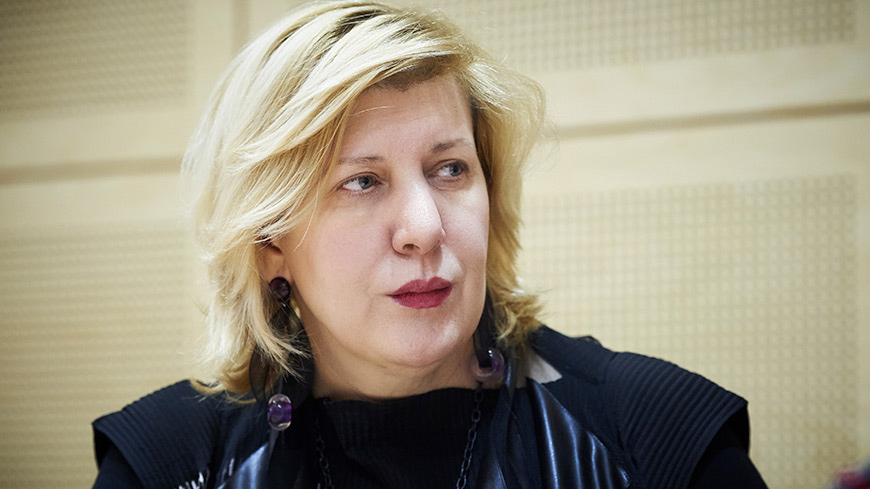The Commissioner participated today in the exchange of views organised by the Greek Chairmanship of the Committee of Ministers of the Council of Europe on the lessons learned from the COVID-19 pandemic. She delivered the following speech:
Ministers, Excellencies, Ladies and Gentlemen,
The COVID-19 pandemic has been the deadliest event since WWII for many of our member states. Like 9/11 and the 2008 financial crisis before it, the pandemic deeply shook our societies and led to a series of measures that are taking a huge toll on people’s lives.
I therefore see today’s meeting as a crucial one to develop a renewed commitment to making our societies more resilient not only to this pandemic, but also to future shocks.
What is at stake indeed is the type of society we want to live in and pass on to the next generations. The choices we are making now in the middle of the pandemic and the ones we will make in the future will determine whether we strengthen our freedoms or relinquish them, promote participation or undermine democracy, empower people or marginalise them.
I see in particular three lessons that we can draw from the pandemic and that should inspire our response.
The first is that we need more equality. Indeed, we have not all been equal in the face of the pandemic. Those who were poor before it became poorer; those who were disadvantaged faced even greater disadvantages. The case of older persons is emblematic. In many of our member states they have paid the highest toll, not only for the health vulnerabilities associated with age, but also for the social settings in which many of them are kept. Those living independently also suffered because of the lockdown measures that further isolated them from their families and the rest of the community. Although different problems have been affecting different groups of people, such as persons with disabilities, women, children, Roma, detainees, migrants, LGBTI people and media professionals, they all share a common denominator: their rights were not fully implemented before the pandemic.
If these people’s rights had not been neglected in the past, the pandemic would probably have taken a less dreadful toll and we would face a less daunting task today.
The second lesson is that we can no longer procrastinate in realising human rights for all. We need a renewed impetus now. The many challenges that our societies will have to face require that we strengthen the place human rights occupy in our societies, starting by giving a more central focus to the equal enjoyment of social and economic rights and equal access to health care and education.
There is no easy fix, but already taking the decision to address the long-standing shortcomings together is a good start. This is my hope for this exchange of views and the next meeting: that we decide to use the Council of Europe as a strategic tool to move forward together and reinforce human rights.
And here I see the third lesson of the pandemic: the need for strengthened multilateralism. No country can solve alone the complex human rights challenges that this health crisis poses, nor those that will come with future crises. Our Organisation stems from the vision of leaders who, standing over the ashes of WWII, understood that multilateral co-operation is the best tool we have to find common solutions to common problems. It is now our turn to give renewed impetus to the ambition of realising human rights and facilitating the economic and social progress of our society.
The pandemic has dealt a severe blow to millions of people in Europe. They now look to us to fulfil their needs and rights. We cannot betray these expectations.



